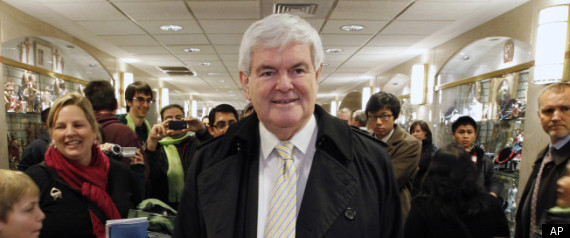COLUMBIA, S.C. -- In the first few hours after Newt Gingrich's 12-point rout Saturday over Mitt Romney as the finality of the thrashing washed over the former House speaker and those in and around his campaign, a growing optimism hardened into confidence.
"I think he wins Florida," said Rep. Trent Franks (R-Ariz.), who endorsed Gingrich and stood on the stage with him Saturday night.
Franks articulated how Gingrich is capturing momentum among Republicans, in part, because many feel there is a "subconscious equivocation" about core conservative issues in the heart and soul of Mitt Romney.
"And it's really not fair to put that mantle upon him, of some metaphysical feeling that we wonder if he's going to be there in the clinch," Franks said. "But I'm afraid that that's kind of a ubiquitous feeling among conservatives."
Kevin Kellems, one of Gingrich's top advisers, said that "Gov. Romney’s campaign is now showing real signs of being off-balance and nervous. There must be a reason for it."
When asked for specific signs of anxiety in the Romney campaign, Kellems responded by email, "among others, Gov. Romney's inability to answer basic questions about his taxes without bouncing around the podium like an overcaffeinated high-schooler being put on the spot by his parents."
"I think he wins Florida," said Rep. Trent Franks (R-Ariz.), who endorsed Gingrich and stood on the stage with him Saturday night.
Franks articulated how Gingrich is capturing momentum among Republicans, in part, because many feel there is a "subconscious equivocation" about core conservative issues in the heart and soul of Mitt Romney.
"And it's really not fair to put that mantle upon him, of some metaphysical feeling that we wonder if he's going to be there in the clinch," Franks said. "But I'm afraid that that's kind of a ubiquitous feeling among conservatives."
Kevin Kellems, one of Gingrich's top advisers, said that "Gov. Romney’s campaign is now showing real signs of being off-balance and nervous. There must be a reason for it."
When asked for specific signs of anxiety in the Romney campaign, Kellems responded by email, "among others, Gov. Romney's inability to answer basic questions about his taxes without bouncing around the podium like an overcaffeinated high-schooler being put on the spot by his parents."


















